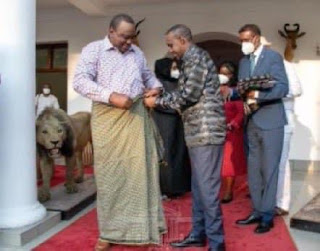How could this chap be wealthy?
Doesn’t he know that poverty causes terrorism? That’s a nearly universally accepted axiom in the West, although it is really just a call for Western nations to write more checks to governments of Muslim countries and Muslim organizations in the West. It’s also demonstrably false.
The New York Times reported that “not long after the attacks of Sept. 11, 2001…Alan B. Krueger, the Princeton economist, tested the widespread assumption that poverty was a key factor in the making of a terrorist. Mr. Krueger’s analysis of economic figures, polls, and data on suicide bombers and hate groups found no link between economic distress and terrorism.”
CNS News noted in September 2013 that “according to a Rand Corporation report on counterterrorism, prepared for the Office of the Secretary of Defense in 2009, ‘Terrorists are not particularly impoverished, uneducated, or afflicted by mental disease. Demographically, their most important characteristic is normalcy (within their environment). Terrorist leaders actually tend to come from relatively privileged backgrounds.’ One of the authors of the RAND report, Darcy Noricks, also found that according to a number of academic studies, ‘Terrorists turn out to be more rather than less educated than the general population.’”
“Terror suspect Ali Harbi Ali plotted attack on Tory MP Sir David Amess for a week: British Muslim, 25, lives on celebrity-studded London street of £2million houses and his father is a former Somali official left ‘traumatised’ by his son’s arrest,” by Glen Owen, Jake Ryan, Abul Taher, and Scarlet Holmes, Mail On Sunday, October 17, 2021:
The killer of Tory MP Sir David Amess planned the murderous assault more than a week in advance, security sources have told The Mail on Sunday.
As police continued to question a 25-year-old British man of Somalian descent last night, sources revealed that the attacker had booked an appointment at Sir David’s constituency surgery before stabbing the politician 17 times.
The suspect was named last night as Ali Harbi Ali, the son of a former communications adviser to the prime minister of Somalia. Harbi Ali Kullane, confirmed that his son was in police custody following the stabbing and said he was ‘traumatised’ by the arrest.
Ali may have lived in Sir David’s Southend West constituency in Essex in the past, but his most recent residence is believed to be in London, where officers have been carrying out searches at three addresses.
The security services are providing assistance to Scotland Yard, which is leading the investigation. Last night, detectives were granted a warrant of further detention, allowing them to keep Ali in custody until Friday.
Police officers were yesterday standing guard outside the North London council house where Ali lives. It is in a street of £2 million three-storey townhouses where neighbours include broadcaster Giles Coren and, formerly, the late actor Roger Lloyd Pack, who played Trigger in Only Fools And Horses.
Sir David, 69, who had been an MP since 1983, met the public every fortnight and advertised the details on his parliamentary website.
Shortly before his killing, one Minister told this newspaper that the Government feared a wave of fresh terror attacks as the country emerged from the Covid pandemic, due to an ‘epidemic’ of ‘bedroom radicals’ who spent lockdown hunched over computers plotting atrocities.
Sir David Amess had been at an Iranian opposition rally, along with five other British MPs, in Paris in 2018….
A senior source said Sir David, who was Catholic, could have been a target due to his religion.
‘They are very hard for the security services to keep track of before they strike,’ the Minister said in a chilling warning.
Ali – who had not been charged last night – is being questioned by police to establish whether he had links to radical Islamic groups. Whitehall insiders said Ali was not known to MI5, although he is thought to have been targeted by Prevent, the Government deradicalisation programme, some years ago….
It is understood that initial indications point to the attacker being a ‘lone wolf’ who had ‘self-radicalised’ ahead of the attack at Belfairs Methodist Church in Leigh-on-Sea at Friday lunchtime.
Sources said that the suspect lived in London and travelled to Essex by train to carry out the attack. Ali was yesterday moved from Southend and taken for questioning to a specialised higher-security unit for terror suspects in London. A post mortem on Sir David has also been conducted.
A Scotland Yard spokesman said last night: ‘As part of the fast-paced investigation, officers have attended three addresses in the London area and conducted searches.’…
An emergency worker called to the scene of Sir David Amess’s death said the alleged attacker was ‘dead behind the eyes’.
The anonymous witness told The Sun: ‘What I saw was horrific. We knew immediately that David was dead. There was no way anyone was surviving that. It was such a savage attack. People were breaking down in tears because there was nothing anyone could do for him.
‘The suspect was already in handcuffs and was sitting on the floor. He was completely dead behind the eyes, staring blankly. And he didn’t say anything.’…










